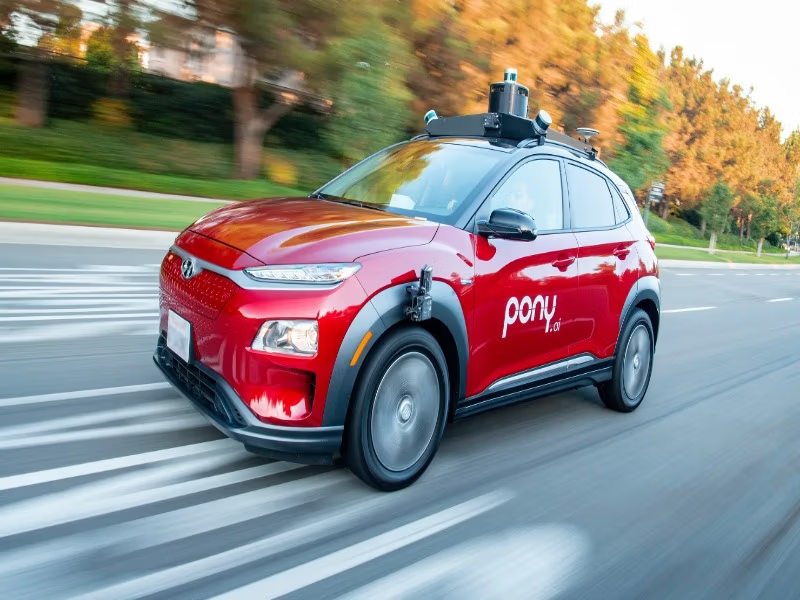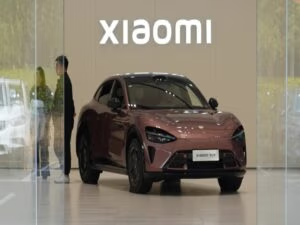Pony.ai, a Chinese autonomous driving firm, saw its share price decline by 14 percent, while competitor WeRide fell by nearly 12 percent, as the autonomous driving firms began trading in Hong Kong.
In their initial public offerings, Pony.ai and WeRide have already listed in the U.S., raising HK$6.71 billion (about $860 million) and HK$2.39 billion, respectively.
The firms are trying to match the bigger players like Baidu’s Apollo Go in China and Alphabet’s Waymo in the U.S., in the growing attention of autonomous technologies.
Both Pony.ai and WeRide, based in Guangzhou, China, said that the funds would be used to increase the level of scaling and the development of Level 4 autonomous driving, which is basically an initiation of driving automation that would not need human monitoring or intervention under any specific circumstances.
WeRide CEO Tony Xu Han informed CNBC that the latest fundraising would be used to expand the artificial intelligence capabilities and data center capacity of the company, although Pony.ai CEO James Peng focused on the construction of autonomous-driving parking and charging systems in addition to the AI development.
The CEOs have emphasized the safety of drivers as their firms are trying to expand globally, including in home markets such as China, where they already are operating fully autonomous robotaxis in some cities.
Meanwhile, the new territories the companies are venturing into reach the Middle East, Europe, and Asian countries like Singapore; therefore, in most of such areas, they are yet to be fully approved to run their robotaxis.
The fact that the two companies have been granted permission to test and operate their self-driving vehicles was a controversial issue in the run-up to the listings.
Local Chinese media reports indicated that Chief Financial Officer & Head of International of WeRide, Jennifer Xuan Li, stated that last week Pony.ai had misquoted investors by informing the number of cities where WeRide had operations, among other issues.
Pony.ai did not respond immediately to a request for comment on the matter.
Both companies are interested in the U.S. in partnering with California-based Uber so that they can roll out their robotaxis on the ride-hailing platform of the company once it has been approved by the regulators.
eventually, their U.S. strategies face challenges, as earlier this year, the government established a rule effectively banning Chinese technology in connected vehicles, including self-driving systems.
Founder and Managing Director of Sino Auto Insights, Tu Le, stated that “With the uncertainty in the markets around the world and the fact that there would be intense scrutiny on a Pony or WeRide trying to enter the U.S. market, a dual listing is a lot about risk mitigation.”
He further stated that the listings also came as a recognition that it will require a lot of capital and an affirmation of a market beyond the U.S, in which Pony.ai and WeRide will thrive.
Pony.ai dropped approximately 2 percent, and WeRide fell 5.3 percent in U.S. trading on Wednesday.
The competing listings by Pony.ai and WeRide point to a recent move by Chinese companies to have dual listings in Hong Kong in what has been a bounce-back year in IPOs in the city.
In mid-October, the companies were given clearance by Hong Kong regulators to dual-list.
Senior Equity Research Analyst of New Street Research, Rolf Bulk, said to CNBC that “For the HK stock exchange, clustering the listing at the same time helps to reinforce investor perception of HK as a tech-hub for Asia-focused technology companies.”
Chinese battery manufacturer and technology firm CATL successfully underwent a secondary listing in Hong Kong in May and raised $5.2 billion in the biggest IPO in the world so far this year.
The trend is increasing despite geopolitical tensions and regulatory uncertainty in the U.S.
New Street Research’s Bulk reported that the Hong Kong listing of Pony.ai and WeRide will enable the companies to access the capital of Asia and increase their visibility in China and the region.
He said, “However, it will do nothing to advance the progress of their technology stack and regulatory approvals in Western markets. If anything, gaining approval in Western markets may be more challenging with an HK secondary listing.”
The listings might also assist the firms to keep abreast with competitors like Baidu’s Apollo Go in China and Alphabet’s Waymo in the U.S., which now have larger fleets.
Sino Auto Insights’ Tu Le added that “Pony and WeRide are right up there among the global leaders. WeRide has diversified its service portfolio a bit more, but they both see Uber and the Middle East as two viable partners in their ability to get more pilots launched outside of China.”
He further stated, “Investors should pay special attention to how their technology evolves with AI and other new tools becoming more mainstream.”






